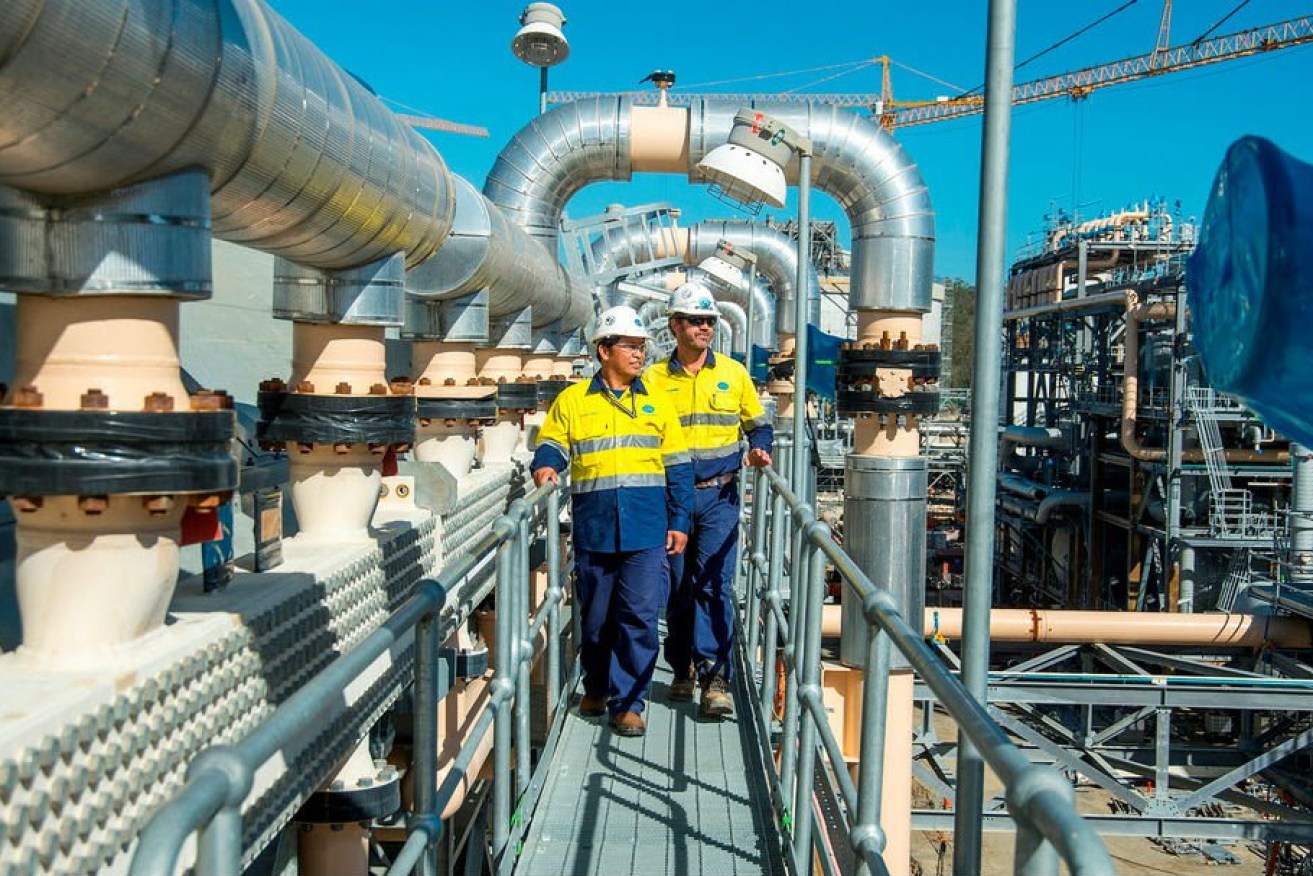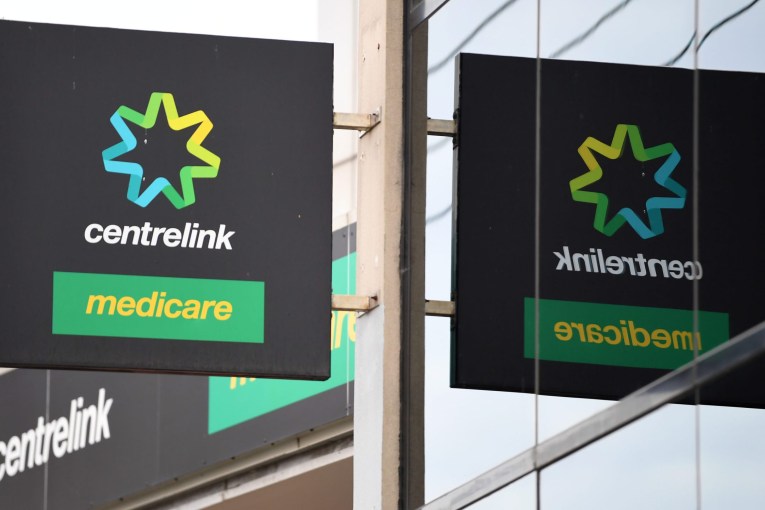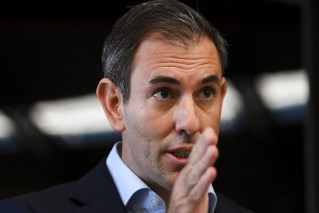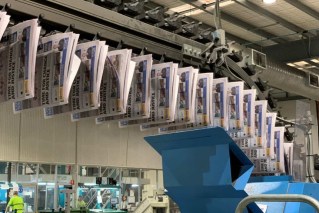Minister’s gas price threat: Husic vows to get tough on Queensland producers
The Federal Government now wants to dramatically rewrite the rules for the three Queensland LNG producers, claiming putting “a sharp focus on their behaviour” was important.


The Santos GLNG project near Gladstone
Facing a prospect of a major shortfall in gas, which has been disputed by the industry, Federal Industry Minister Ed Husic said the issue was getting to the point of needing “hard action” in activating what’s known as the gas trigger, but also in renegotiating and reforming it so that it would also be activated on price rather than just a shortage as was the case now.
Husic said he was concerned that the LNG exporters, who invested $75 billion in their three projects near Gladstone, had ignored their social licence, a claim the industry rejected.
“And I think that is … a poor reflection on them,” he told ABC Radio.
“And if we had to activate a legislative response to this situation then it will show you how far they have slipped.”
It’s not the first time the LNG industry in Queensland has faced concerns about their impact on the community. During the development of the sector a decade ago, there was widespread concern in regional towns like Dalby and Chinchilla about their negotiations and coal seam gas extraction methods.
Coal seam gas producer Arrow Energy, which is part owned by exporter Shell and does supply the domestic market, was recently fined $1 million for breaching land access rules.
But while much of the blame has been directed Queensland’s way, Victoria has restrictions on fracking and in NSW one project has fighting for eight years to develop.
The three Curtis Island consortia are predominantly exporters and have never been bound by any domestic gas reservation, but shortages have forced them into an agreement with the Federal Government that could direct uncontracted gas to the local market. That trigger has never been used and has been considered incapable of dealing with skyrocketing prices for gas that are affecting manufacturers as well as the community.
Husic said gas prices had shot up from $8 a gigajoule to $44 in recent years and he backed a price trigger.
“Look from my personal perspective yes, because I think that these conditions are going to last for a while,” he said.
“So, I think there will be a demand for our gas, and particularly as the northern hemisphere heads towards its winter, which is hard to conceive or think about now given the weather conditions that they’ve had to endure. They will have to get access to supply, and they will get prices that – or they will shape prices in a way that I think it will continue for quite some time looking at current conditions. And we do need to be prepared for that as a country – as Australia, I mean.
“The gas producers can shape the outcome that will be workable for them and Australian industry, and they can avoid a situation where we do this. But I do think we’re getting to a point where we are going to have to take hard action in activating the trigger and reforming it in a way that allows us to activate it on the basis of price if they don’t come to the table quite frankly,” Husic said.
“And the other weird thing is when people have been going through shortages through a cold winter and these companies clearly are to blame and are responsible for this pricing situation, you know, what strikes me as odd is that in a few months’ time they’ll no doubt be dusting off the PR campaigns to show that they are a part of the community and that they make themselves look warm and fuzzy and that they’re all into corporate social responsibility.
“Really, they get measured when the times are tough … when the resource that rightly Australians expect is theirs and should be available in large quantity to meet the needs of households and businesses?”
The gas industry lobby group APPEA said there was more than enough gas to ensure there was no shortfall, as forecast by the Australian Competition and Consumer Commission.
APPEA’s acting chief executive Damian Dwyer said the industry acting to ensure supply next year so there would be no need to formally trigger anything.
“The review of the ADGSM (the gas trigger) was announced this week and the industry will engage constructively with the Government during that review process,” Dwyer said.
“The ACCC report is designed to signal when action is needed, there has never been an actual shortfall and that will continue to be the case.
“The report itself said there is sufficient domestic gas supply for next year – 167 PJ of uncontracted gas available for supply into the domestic market, more than enough to ensure ongoing supply domestically.
“Market intervention is not needed but stability and certainty is. Australia needs to be mindful of any signals sent to our longstanding trade and investment partners around the world who have invested in the Australian economy because we are a safe investment destination.”












